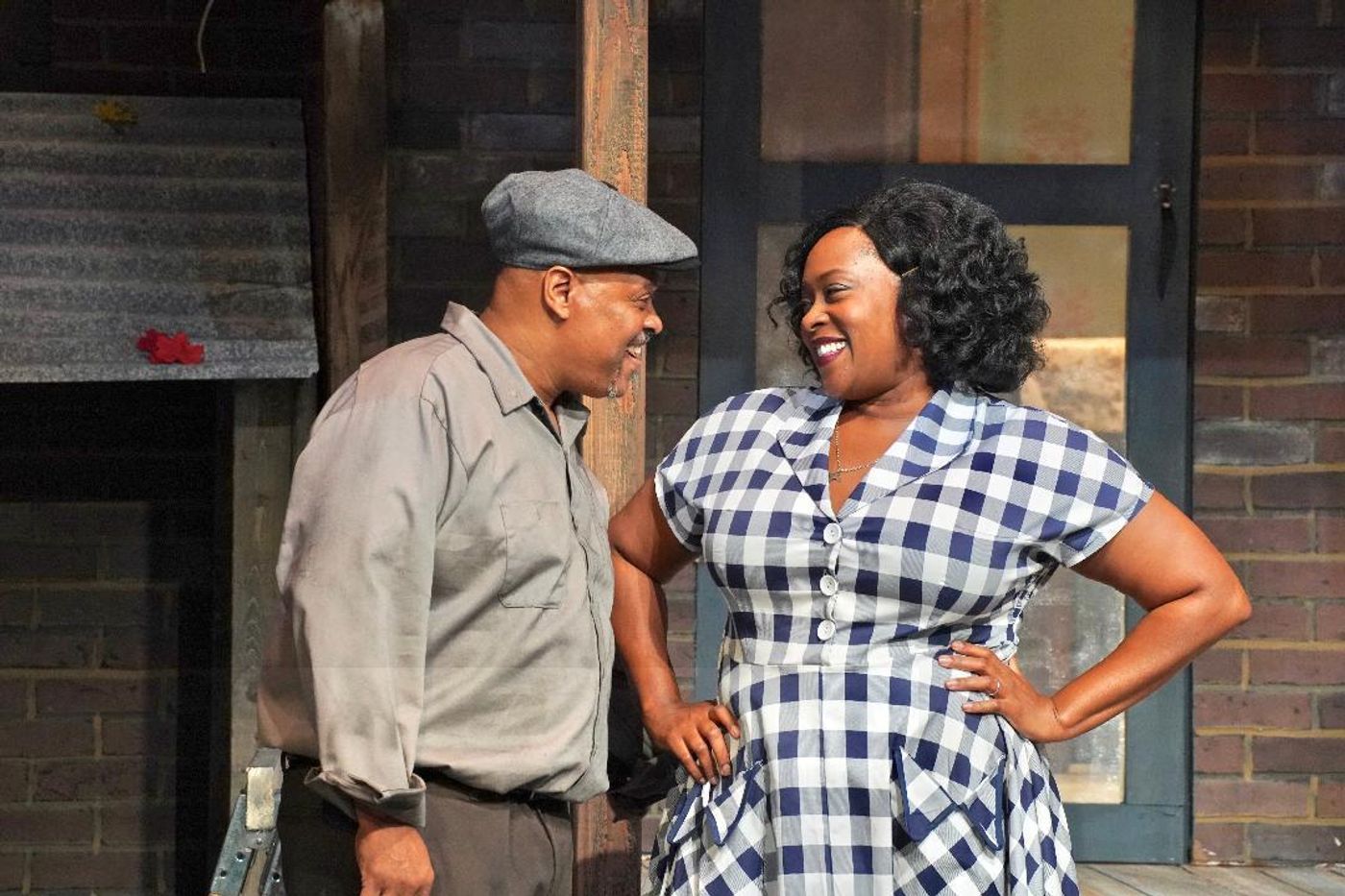Review: Finely Built FENCES at Karamu

August Wilson is considered one of the most prolific sources for documenting the twentieth century African-American experience. His ten-play cycle, basically set in Pittsburgh's Hill district, started with "Gem of the Ocean," representing the 1900s and ended with "Radio Golf," shining the spotlight on the 1990s. "Fences," which is now on stage at the newly renovated Jelliffe Theatre at Karamu, was the 1950s representative.
Like all of the "Pittsburgh" plays, "Fences" explores the evolving African-American experience and examines race relations, among other themes. The play won the 1987 Pulitzer Prize for Drama and theTony Award for Best Play for its picture of damages to Black manhood as well as the conflicts which arise between family members based on the way they see the past and what they want to do with their future as well as the coping methods used to survive from being caught up in a cycle of stagnation.
Troy is a 53-year old a hard drinker, former convict, and one-time player in the Negro Baseball League. He never got to play in the Major Leagues because of the color barrier. He ekes out a living in a low paying barrel-lifter job because his race restricts his rise through the work ranks. Finally, as a symbol, he becomes the Jackie Robinson of the company when he becomes the first black truck driver.
Troy lives in his own home, with his wife Rose and son Cory. His brother Gabriel is a former soldier who was injured in the war and suffers from psychological damage. He lives in a rented room, but spends much time at Troy and Rose's home. Troy also has a son, Lyons, the product of an earlier marriage, who is a some-time musician who weekly borrows money from Troy, and is a recipient of his father's verbal abuse.
Troy and his work buddy, Bono, spend lots of time drinking and talking.
As the story evolves, infidelity, conflicts between the rigid Troy and frustrated Cory, the birth of a baby, a conflict between Rose and Troy, Cory's leaving home, and death become a part of the fabric of the family.
The major allegory in the plot is a fence. A physical barrier, built over many years, defines Troy's property. In addition, in a telling speech, Troy fantasizes that death, in the form of the Grim Reaper is coming, and the fence is his defense against his demise. Troy also builds a psychological fence, cutting himself off from his sons.
The philosophical base of the play comes from such prophetic lines as such as, "What law says I have to like you?" "A man has a duty to take care of his family." "I planted myself inside you." "You got to take the crooked with the straight."
Karamu's production, under the astute direction of the organization's President and CEO, Tony Sias, is compelling.
The acting is top notch. Darryl Tatum creates reality with his smoldering portrayal of Troy. This is a flawed man who creates angst for others through his rigid and self-protective view of life. Colleen Longshaw inhabits the role of Rose, clearly showcasing the strength and level-headedness of the woman.
Dyrell Barnett (Lyons) and Dar'Jon M. Bentley (Cory) give strong performances as the put-upon sons.
Prophet D. Seay, steals the show with his accurate portrayal of the physical and emotionally wounded Gabriel.
Peter Lawson Jones carries the weight of the world on his shoulders as Bono, a man stuck in a quicksand-life.
Young Logan Dior Williams was delightful as Raynell.
Capsule judgment: As is the case in all of August Wilson's Pittsburgh cycle plays, "Fences" is both a revealing history lesson and a snapshot of the black experience in this country. It is a well-performed, important play, which deserves attendance by not only African American but also white audiences.
"Fences" continues through October 21, 2018 at Karamu, 2355 East 89th Street, which has a fenced, lighted parking lot adjacent to the theatre, and provides free parking. For ticket information call 216-795-7077.
Next up at Karamu is Douglas Turner Ward's "Day of Absence" on stage from October 25 through November 18, 2018.
Reader Reviews

Videos

